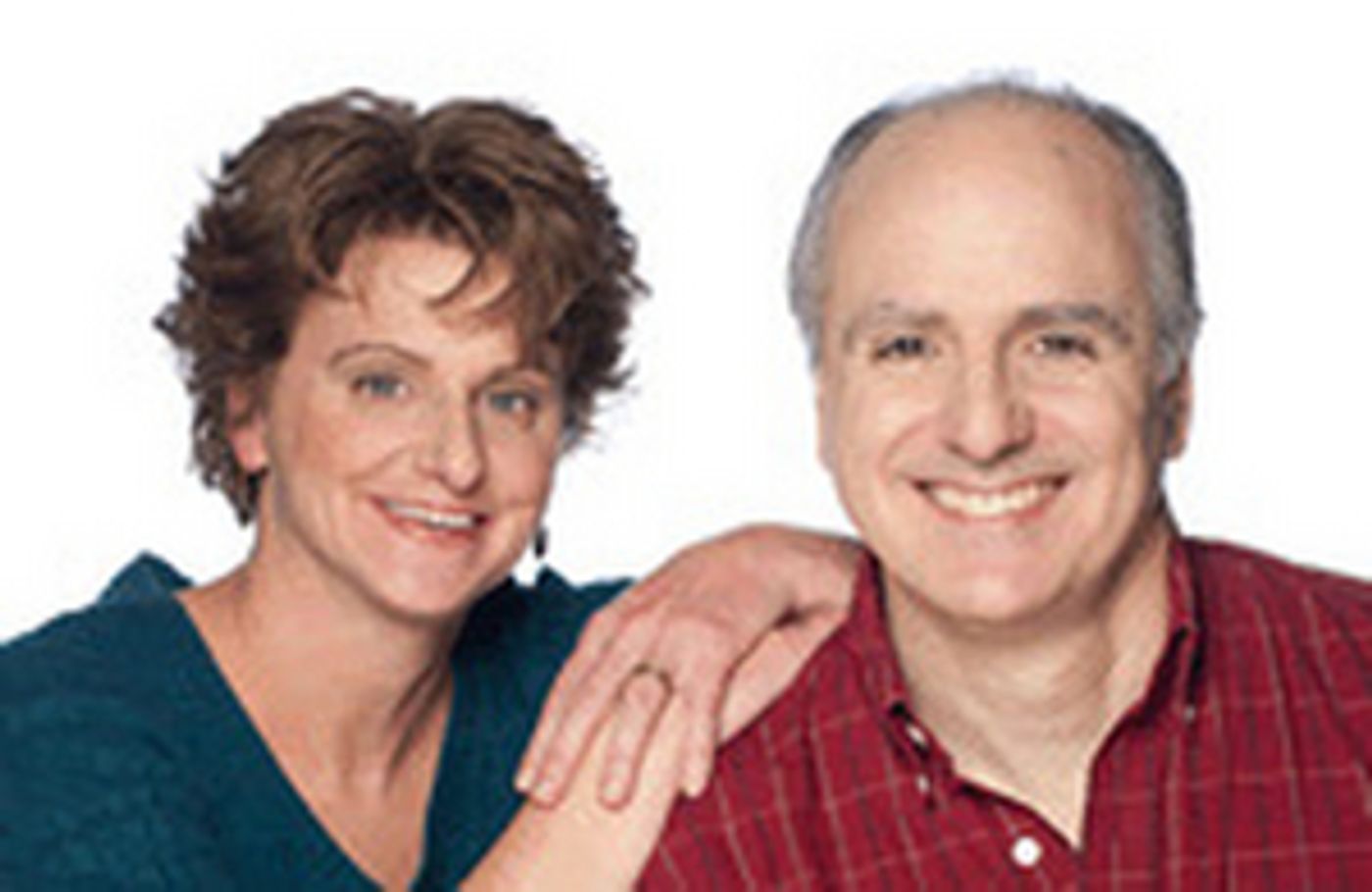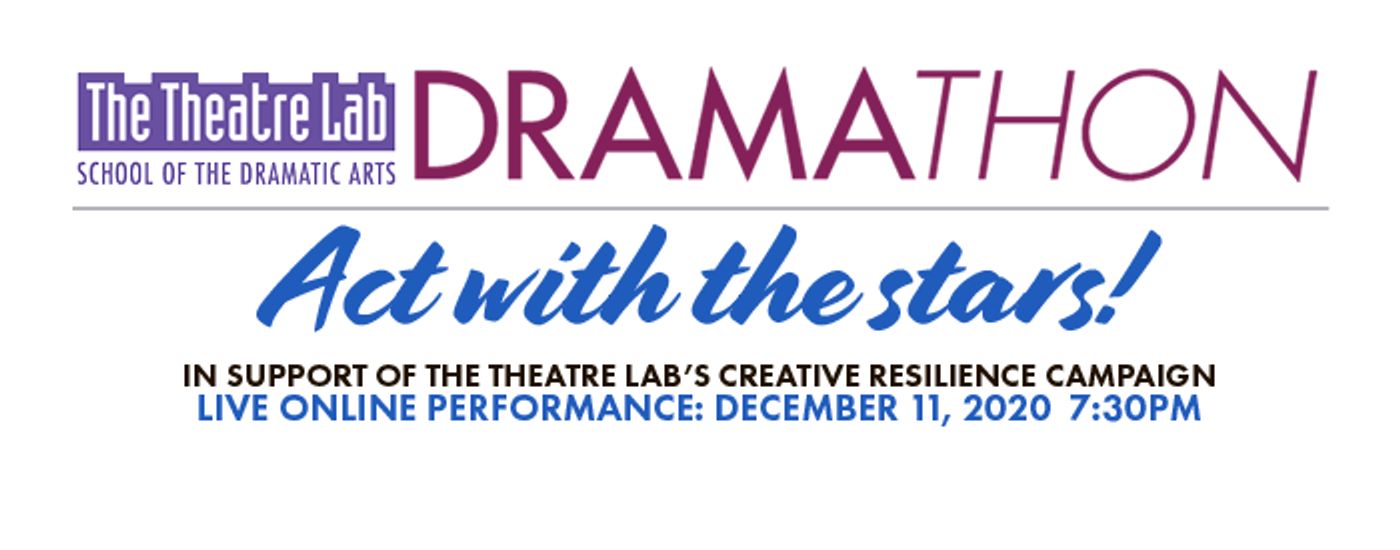The Theatre Lab's Deb Gottesman and Buzz Mauro on Turning a Yearly Event Virtual and How They Have Kept Their Fine Arts Education Organization Going During a Pandemic
Deb and Buzz prove you can create great art in the most trying of times.

Deb Gottesman and Buzz Mauro.
Throughout this pandemic, arts education institutions across the country have had to rethink how they conduct their classes and fundraising events.
This Friday evening December eleventh at 7:30, DC's finest arts education institution The Theatre Lab School of the Dramatic Arts will turn their yearly Dramathon, a centerpiece event for the organization, virtual via Zoom. 2020 marks the tenth year of the event.
The event pairs Theatre Lab students together with professional DC theatre performers and directors to perform a brand-new work written by a local playwright. The students go around getting donations from friends and family as a way to perform in the event.
The Theatre Lab's co-founders Deb Gottesman and Buzz Mauro took a few minutes out of their always jam-packed schedules to answer a few questions I had about turning the Dramathon virtual this year and also how Theatre Lab in general has continued to provide artistic excellence to its students during this difficult and bizarre time.
Speaking as someone who has worked this event for many years, I urge you to watch the event Friday evening (It's free to watch) and consider making a donation if you are able to. Your money is going to a very worthy cause and will continue to keep Deb and Buzz's vison alive for many years to come.
When the pandemic started back in March, what were your first thoughts on how the Theatre Lab would transition to a fully virtual set up?
Buzz: At first, before the extent of the situation was clear, we thought we might do some kind of hybrid of in-person and at-home study for our adult classes, where the teacher would be in the room with a few students and a computer camera trained on the action, and others could participate from home. But things moved so quickly that we never even tried that. We pivoted immediately to teaching all our classes online only. We had no idea how it would turn out, of course, but our teachers rose to the occasion in a big way, and we discovered that even the classes we thought were most dependent on being in the room together - classes that focus on movement and physicality, for example - can be done really effectively on Zoom. For some classes - Voiceovers, for instance - the online experience was even more effective than the in-person version for some people. In almost all our classes, it turns out you can get basically the same level of instruction - and something close to the same level of human connection - without dealing with traffic and parking or where to get something to eat between work and class. We all look forward to seeing each other in person again - no question about that! - but we've discovered that online teaching has its advantages. We'll definitely be continuing with it to some extent even after in-person classes resume.
Deb: I think one of the things we're most happy about is that, because we were able to make the pivot and offer virtual classes that students find meaningful, we've been able to keep our faculty members-- who are all professional theatre artists--consistently employed at a time when they have lost the majority of their stage income.
What would you say are some of the biggest challenges of conducting theatre classes online?
Buzz: For some people there's a technological barrier, of course - and we're really proud that we were able to provide devices and help with internet connections for kids who wanted to do our virtual summer camps but didn't have the means. For people who have the necessary connectivity, one of the biggest obstacles has actually been getting people to believe that you can get a real education in drama without being face to face in the "real" world. We ourselves were surprised how much of a sense of connection is possible over the Zoom platform, so it's not surprising that students were wary of it at first, but as more and more people gave it a try, that barrier started breaking down, and now our classes are filling again.
Deb: Some of the biggest challenges have also turned into the biggest opportunities. After having taught more than 150 different courses and produced five full-length shows on the virtual platform, we're finding new ways to be creative and "break out of the Zoom box." I've been working with 15 teens on a play about a post-war society by Stephen Spotswood (Off a Broken Road) that we have adapted for these pandemic times. The students not only added material about their own lives "in isolation" but they are performing live this weekend in both indoor and outdoor locations near their homes. They'll be on multiple devices--computers, phones, you name it-moving around with their cameras as they perform. Think Blair Witch Project meets stay-at-home orders! Because they are performing without a net (live and with a high degree of technical complexity), everyone is really bonded and totally excited.
Deb- Along that same line, how does playing a scene against another person that isn't physically in the same room happen? How do you get the chemistry between the performers?
Surprisingly very much like what happens on stage. If you configure your device well-meaning that your scene partner's eyes on the screen are very close to where your camera is-then eye contact feels possible and you are still all about trying to affect the other person with your words and actions. We always say that acting doesn't happen in one actor or the other, it happens in the space between. I guess that space is technically bigger now (miles between us in most cases), but it doesn't feel that way because, when you're in a virtual scene, you're looking at the other actors as if they were just a few feet away. I think one side benefit of these times is that people have become more reliant on their imaginations, which will serve us all well when we get back into the same space.

Buzz- The Dramathon is one of your biggest fundraising events of the year. Where did the idea for it come from?
A student actually suggested it to us. (A lot of our best ideas - including our "Creating a Role" courses that culminate in full productions - have come to us that way.) It was a late-night thing at first, held on Fridays after other shows had gone down. At first, we thought it might include student playwrights as well as student actors, but we immediately got the support of many of Washington's top professional playwrights, and many of them write new 10-minute plays for us year after year. Student actors, and even people who have never acted before at all, raise money for our programs and then do staged readings of the plays, working with an accomplished professional actor, under an accomplished professional director, in each piece. A lot of great new plays come into the world this way, everybody has a ton of fun, and our programs get a lot of support - all because somebody said, "Hey, here's an idea."
When someone gives a contribution to The Theatre Lab during the Dramathon, can you please talk about what their money goes towards?
Deb: Contributions to the Dramathon go to our Creative Resilience Fund, which allows us to continue to provide the artistic and real-life benefits of theatre education to people from all walks of life. Since the pandemic began, we've offered more than 150 multi-week, interactive online courses, welcomed 440 young people into our virtual summer programs, and supported 130 students on scholarship, providing them the technology needed to make participation on Zoom possible. Our Life Stories programs, which help vulnerable people tell their stories, are going strong on the virtual platform and we're even launching a new program to help DCPS teachers implement Life Stories in their own classrooms. Probably most important, our students are telling us that they are experiencing connection, creativity, and growth in ways that seemed impossible when the COVID crisis began. For many children and vulnerable adults in the DC area, I think The Theatre Lab's programs have been a critical lifeline in a time of deep social isolation.
We're proud of all of this, but we know we face a long road ahead. Like all performing arts institutions, we've experienced a major decline in revenue streams. The Dramathon helps us make sure that we can continue to offer these virtual programs and come back stronger than ever when it is safe to return to in-person programming.
We all know an event such as the Dramathon has many different components to it. You have to coordinate between many different people (actors, playwrights, and directors.) Is it more work to put it together for an upcoming virtual audience?
Buzz: The coordination and scheduling is certainly the most difficult part every year. We get all these dozens of people willing to generously donate their time and talent - and then we have to somehow get them together to rehearse and perform eight separate pieces. Each piece gets just an hour and a half of rehearsal, because we don't want to make unnecessary demands on either the professionals or the fund-raisers, but getting those people together for those rehearsals is quite a trick. I don't think it's been any more difficult this year, though. In fact it may have been a little easier, because we didn't have to juggle physical spaces for the rehearsals. I know it seems crazy to talk about anything being easier than usual in these awful days, but there are a few little silver linings if you look for them!
When we are all able to gather again in a classroom or on a stage, what are you most looking forward to workwise?
Buzz: I think the thing I'll be happiest to get back will be the little chance moments of connection with students and other teachers and the rest of the Theatre Lab staff, just passing in the hall, running into each other before or after class, even if just for a smile and quick hello. Being able to make a comment or share a joke with somebody without having to schedule a Zoom call for it. I'll be glad to get our big productions back, of course, and to have both students and audiences enjoying the thrill of live bodies doing theatre in one big room together, but I actually think those little random moments are what I miss most.
Deb: Ditto. And I miss all being able to talk at once!
Videos

